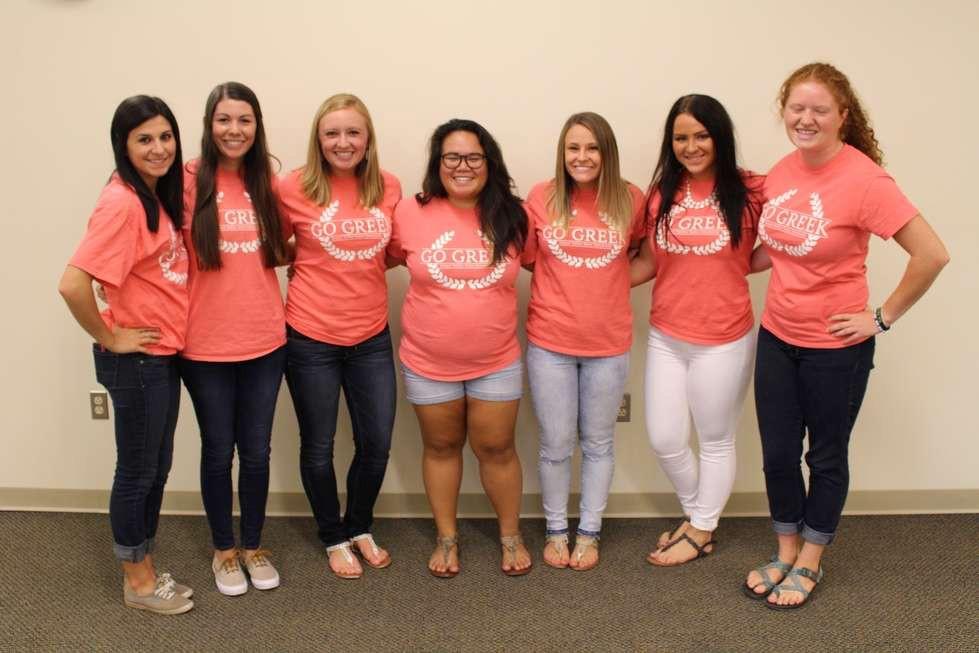Social justice series challenges Greek stereotypes

GVL / Courtesy – GVSU.edu Members of the GVSU Panhellenic Association model appropriate attire for recruitment.
Feb 4, 2016
Raging house parties, dressy formal events, boat shoes and bow ties – Greek life is known for a lot of things. These stereotypes, while seemingly innocent, can cast a negative light on some aspects of Greek culture.
These stereotypes, like rampant sexual assault as a norm in the Greek community, are the reasons why the Community Service and Learning Center and Greek life at Grand Valley State University have partnered together to host a social justice series on campus.
Focusing on various issues – such as transgender inclusive policies and discussions on micro-aggressions – the series will discuss how GVSU can make a more inclusive and safe space for members of its community.
The next installment of the series will take place on Feb. 12 from noon until 1:30 p.m. in the Kirkhof Center and will specifically address the realities of sexual assault in the Greek world and acknowledge stereotypes in the Greek community on a national level.
Santiago Gayton, the fraternity and sorority life coordinator in the Office of Student Life, said the purpose of this particular event is because of some negative media attention of Greek life. He said it’s also to address how this community can help prevent further acts of violence.
“We are fortunate here at Grand Valley that we kind of go against some of those norms and stereotypes of what a lot of sorority and fraternity lives engages in nationwide,” he said. “That doesn’t mean we don’t need the education and we don’t need to take the time out to say that this is what is happening nationwide.”
The event will not only present the facts on a national scale, Gayton said, but it will also allow the fraternities and sororities to be put in the conversation and considering themselves bystanders in reporting possible crimes.
The series aims to make all participants aware of different resources on campus and know the difference in talking to a GVPD officer, the victim advocate at the Women’s Center, or a counselor in the Counseling Center.
Malayna Hasmanis, president of the Panhellenic Association at GVSU, said that the benefit of GVSU and the Gayton hosting this type of series will address the negative stereotypes that is associated with Greek life.
“Often at times in the media it is portrayed that fraternity men are the big catalyst for sexual assault and it kind of plagues and really affects the college community,” she said. “If anything, I think that we are really trying to be proactive and Santiago is really trying to show that we are constantly trying and taking the initiative to break these molds and unify as a body and fight against it while also spreading awareness.”
Having this discussion will then urge the community to say that sexual assault does pertain to everyone, Gayton said, and if fraternities and sororities are going to continue to promote family and togetherness, there has to be a frank conversation in addressing any issues that may happen on campus.
“There are real conversations that need to be had, asking if we do know how to support each other,” Gayton said. “Collaboration amongst organizations is important because this something that all of us need to talk about and training on and realize how we can work together to make this community better.”
For further information about the social justice series and its upcoming events, visit www.gvsu.edu/greeklife/social-justice-series-96.htm.

























